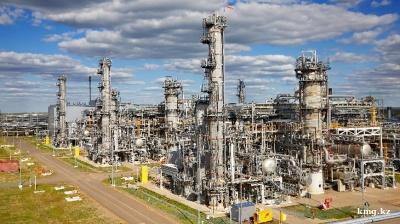MOL is assessing damage at its Danube Refinery near Budapest (Szazhalombatta) after firefighters extinguished a blaze that broke out on October 20 at one of its main crude distillation units, affecting 40% of output, financial website Portfolio.hu writes.
According to both the government and the oil company, Hungary’s domestic fuel supply remains secure, although the incident could lead to temporary price increases due to additional repair and replacement costs. First comments by analysts suggest that the fire could have wider regional consequences.
Prime Minister Viktor Orban, in a Facebook post on October 21, ordered a full and strict investigation into the circumstances of the fire, which erupted in the AV3 distillation unit, one of three main facilities processing crude oil at the site, which accounts for 40% of the plant’s processing capacities.
Krisztian Pulay, executive director of MOL, said at a press conference on October 21 that the fire was fully extinguished by late morning, no injuries were reported, and there was no evidence of any external interference, sabotage, or connection to a recent explosion at the Lukoil refinery in Romania.
Pulay said the full assessment of the damage can only begin once the affected area has cooled, likely within 24 hours, while those parts, the other distilling units not affected by the fire are being restarted.
Industry experts interviewed by state news agency MTI said that repairs could take several weeks or months, depending on the extent of the damage. Some noted that the refinery’s other two distillation units (AV1 and AV2) can temporarily increase output, reducing the overall impact.
Analysts at Erste Investment said, based on the images and footage, that around 40% of the refining capacities could be lost for several months. The AV3 unit has an annual processing capacity of 3mn tonnes, making it the largest of the three distillation units at the Danube Refinery, commented Tamas Pletscher.
This means that MOL may have to purchase additional fuel on the market or draw from strategic reserves, enough to secure domestic supply for 90 days.
At the same time, analysts warned that the costs of repairs, production losses, and increased fuel imports would weigh on MOL’s finances and could translate into higher retail fuel prices.
Sources told MTI that the company is unlikely to fully absorb these costs. Still, the government is expected to avoid any measures that could disrupt supply or trigger fuel shortages similar to those seen at the end of 2022.
Market observers added that the company may redirect part of the production from its Slovnaft refinery in Bratislava to the Hungarian market, ensuring continuity without significantly increasing crude oil imports.
Erste warned in the report that the outage at MOL's Hungarian unit could have ripple effects across the Central and Southeast European fuel markets, naming Serbia, where the country’s sole oil refinery, operated by NIS, has been hit by US sanctions due to Russian ownership ties. Since October 8, the company has been unable to import crude oil, raising the risk that its refinery in Pančevo may have to suspend operations within weeks unless an alternative solution is found.
The Erste analysts warned that Serbia could face severe fuel shortages if MOL’s export capacity remains limited.
They also pointed out that Serbia’s energy situation is compounded by uncertainty over gas supplies. Gazprom has declined to renew its long-term gas contract with Belgrade beyond the end of this year, citing supply risks. Washington is reportedly pressuring Serbia to bring NIS and its gas infrastructure under state control to escape sanctions and open access to alternative supply routes.
However, the Serbian government has so far resisted such moves, leaving President Aleksandar Vučić in a difficult position. Aligning with the West could ease energy pressures but risk political backlash at home, while staying loyal to Russia could lead to a paralysing energy crisis, Erste concluded.
News

Bolivia's new leader must rebuild a shattered economy
Bolivia enters a new political and economic phase as centrist Rodrigo Paz prepares to take office on November 8, inheriting one of the country’s most acute crises since the hyperinflation of the 1980s.

Hungarian foreign minister says "many actors" worked to prevent Budapest summit
The White House has suspended plans for a meeting between US President Donald Trump and Russian President Vladimir Putin in Budapest.

Central Asian states registering impressive trade gains
Success despite the lack of access to a seaport.

Taiwan confirms first African swine fever outbreak
Authorities detected the virus on a pig farm in Wuqi District, Taichung, after 117 pigs died between October 10 and 20.




